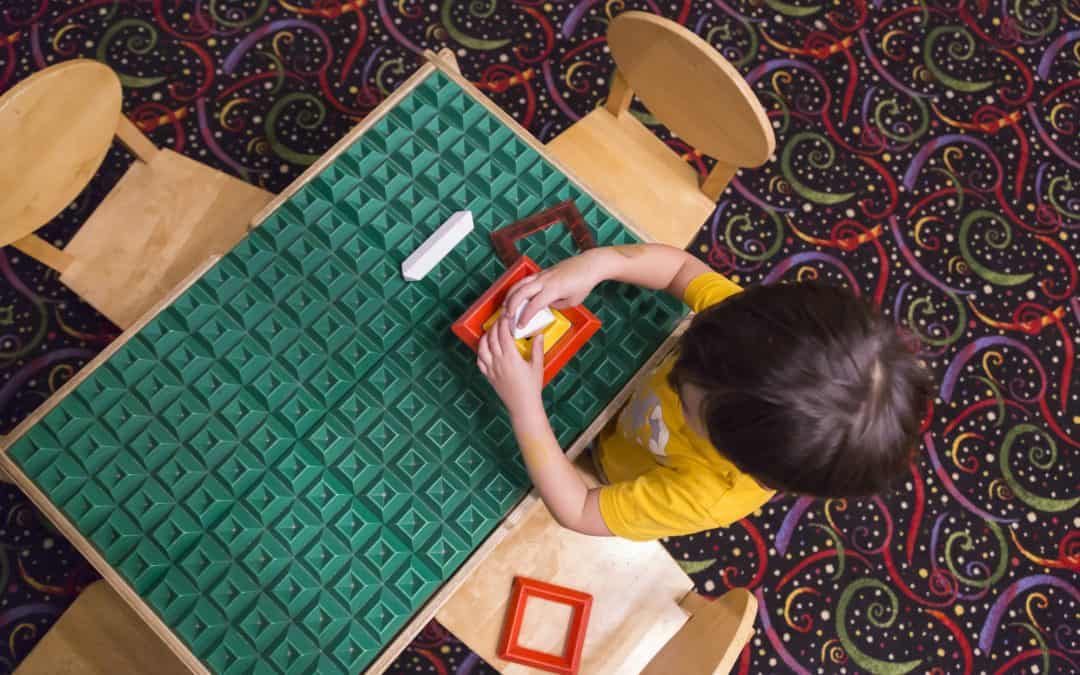Children are often unable to express themselves with words in the ways in which many adults are capable. Play therapy is a common style of therapy used for observing and treating children who may be going through a hard time and/or having difficulty expressing themselves. Play therapy may look like ordinary playtime to someone passing by, but it is actually much more than that. Keep reading to explore this style of therapy, how it differs from regular talk therapy, and how it can be beneficial for children and even some adults.
What is Play Therapy?
Play therapy is a means of using play in a therapeutic environment to help children safely express their emotions and develop coping skills. It is a therapeutic approach that enables children to explore and express their feelings. Play therapy can assist the therapist in observing, communicating, and treating childhood trauma and inappropriate behaviors. This style of therapy can be practiced by a variety of licensed mental health professionals, but someone who specializes in play therapy will typically earn an advanced certification and/or become a Registered Play Therapist.
The Difference Between Play and Talk Therapy
Play is the “child’s language”. They learn, explore, and communicate most effectively through play, which is why play therapy is typically used on children between ages 3 to 12. It can be an empowering experience and help increase a child’s self-esteem.
Play therapy allows children to explore problems from a safe distance, which is helpful because it meets them where they are at and allows them to work through things at their own pace. Maybe they are not ready to directly acknowledge the specific ways that they struggle, or the difficult experiences they’ve witnessed or been through, but engaging with materials or toys in a parallel way to explore these difficult topics from a more approachable angle can help children start to work through these issues in their own unique way. Psychology Today explains that this style of therapy can help children with academic and social problems, learning disabilities, behavioral disorders, anxiety, depression, grief, or anger, as well as those with attention deficit disorders or who are on the autism spectrum.” This type of therapy could be a good fit for any child experiencing emotional and/or behavioral challenges. This might include children going through a difficult event such as the divorce of parents, school problems, difficulty making friends, traumatic events, etc. Children who have experienced neglect or abuse can also benefit from play therapy, as well as children who have been adopted or are in the foster system.
By contrast, talk therapy is typically used in an adult setting as most adults become less playful as they get older. The most common forms of talk therapy include cognitive behavioral therapy, dialectical behavior therapy, psychodynamic therapy, etc. However, play therapy can be used in teenage and adult settings to help someone repair their connection with play and creativity. A play therapist can be used to help adults suffering from dementia, grief and loss, PTSD, anxiety, depression, and more.
Benefits of Play Therapy
Play therapy can have a very positive impact on both the client and the therapist. What makes it fun/rewarding for you as the therapist? It is wonderful to watch children work through challenges and open up through the use of play. We have seen children be truly transformed by being able to play through their problems.
Play therapy is best done in person. However, there are techniques that can be utilized virtually. Benefits of play therapy include the following:
- Developing self-awareness and self-respect
- Developing empathy for others
- Learning to fully express feelings
- Creating stronger social skills
- Developing stronger family relationships
- Learning how to take responsibility for certain behaviors
- Developing coping strategies and creative problem solving
Play therapy encourages communication and movement in a whole new way. It is one of the many types of therapeutic services we offer at Herrera Psychology. Learn about all of our youth psychology support and treatment services here.


